How do you bring a rail strike to an end?
- Published
Rail bosses have agreed to hold formal talks with unions in a bid to resolve the ongoing Southern rail dispute. But how have rail strikes in the past ended?
Improved offer
Even after months at loggerheads, one side may eventually give way.
That was the case after a pay and conditions dispute delayed the introduction of Night Tube services in London for nearly a year - leading to shutdowns on many lines and disruption for millions of commuters.
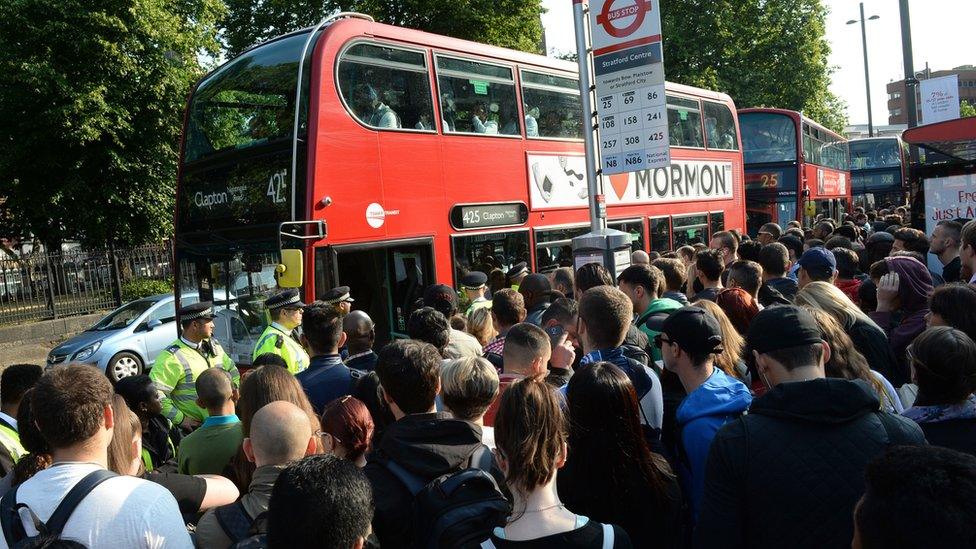
It was buses only for millions in London during the strikes over Night Tube services
An improved deal was accepted by members of the Rail, Maritime and Transport union and Aslef - the same unions involved in the Southern strike - in March this year after months of wrangling.
RMT general secretary Mick Cash said the agreement had come about because of the "loyalty, determination and militancy of the workforce right across the Tube network".
Steve Griffiths, London Underground chief operating officer, said he was "pleased" RMT members had accepted the deal, which he said gave them "complete protection of employee work/life balance".
Legal ruling
In other disputes, no-one may be prepared to blink, but the courts step in.
A planned national rail strike by the RMT union in April 2010 was cancelled after Network Rail challenged it in the High Court.
The company was granted an injunction after it alleged discrepancies in the RMT's ballot for industrial action.
The row centred on plans to axe 1,500 maintenance jobs and change rosters to allow more work in the evenings and at weekends.
Six months later the dispute formally ended with both parties agreeing a pay deal.
In the current Southern dispute, parent company, Govia Thameslink Railway tried to take the legal route, but earlier this month, the High Court rejected its argument that further strike action would breach customers' rights.
Government intervention
From judges to ministers - and at times, politicians have made it their business to act.
A series of strikes by guards working for ScotRail this year in a dispute over driver-only trains came to an end in October.
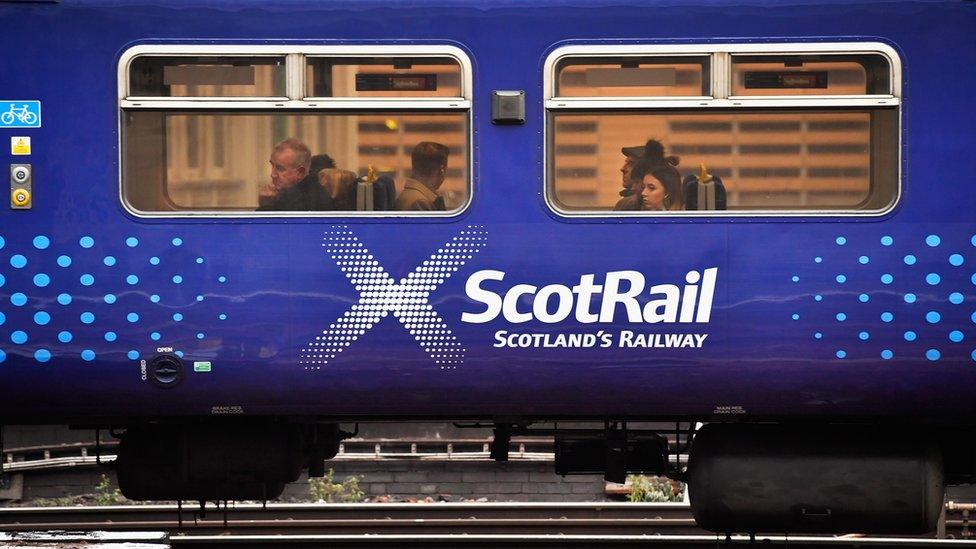
Will the ScotRail strikes prove to be a blueprint for the Southern dispute?
The resolution came after the Scottish government had earlier confirmed it had contacted both ScotRail and the RMT, calling on them to "put their differences to one side and reach an agreement in order to minimise disruption for the public".
RMT general secretary Mick Cash said at the time that the deal potentially provided a model for resolving the Southern Rail dispute.
"The agreement has been reached after a campaign of industrial action and after intense negotiations and shows what can be achieved when management and unions get down to serious talks," he added.
Third party peacemaker
A helpful third party can sometimes bring things to an end.
Commuters and holidaymakers across the UK were affected by three 24-hour stoppages in 2003 in a dispute over safety procedures.
But the row was called off when the RMT union and 12 train companies agreed to accept recommendations from the independent Rail Safety & Standards Board.
The agreement saw the RMT call off two further 48-hour train strikes involving most companies.
Wales & Borders, Central Trains and Wessex Trains were worst hit by the action that was staged.
'Differences resolved'
Even the most intractable rows usually come to an end, but because things happen behind closed doors, it isn't always clear why.
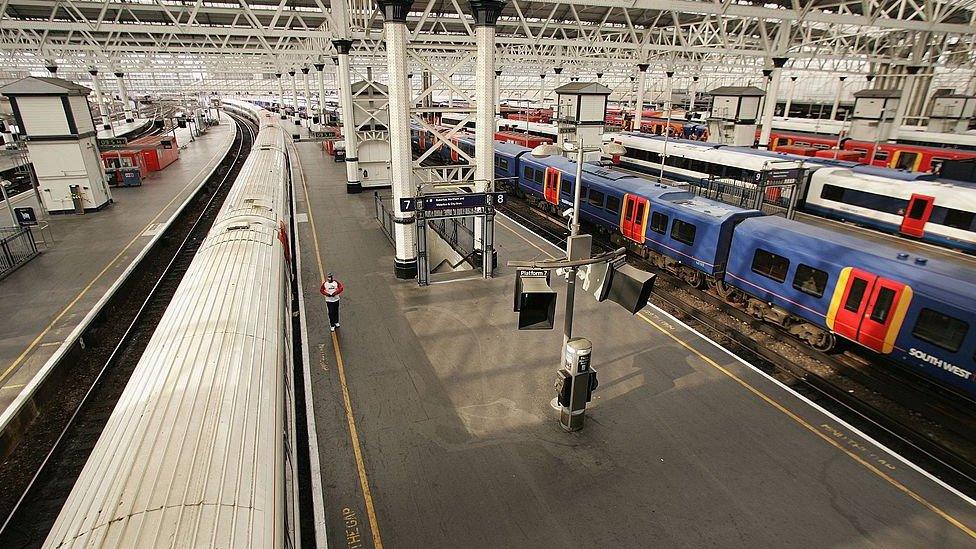
Deserted platforms at Waterloo in 2006 when drivers for South West Trains went on strike
In 2006, a series of strikes involving drivers on South West Trains, which caused major disruption to services, ended following talks between the company and union leaders.
The dispute began over the use of taxis on early morning or late night shifts, but escalated when SWT used managers to drive trains during a previous strike.
The way an Aslef spokesman phrased it was: "We have resolved our differences and we look forward to better industrial relations in the future."
So how could the Southern strike end?
Well, for Roger Seifert, professor of industrial relations at Wolverhampton Business School, agreeing to talks at conciliation service Acas - as two of the three parties have now done - was always the most likely way to secure a breakthrough.
But the Southern dispute has reached "uncharted territory".
"When rail was a nationalised industry, the government did intervene," says Prof Seifert.
"Since privatisation government tends to intervene behind the scenes - through unions when Labour is in power - but in the Southern case, the government would be putting pressure on the employer to settle."
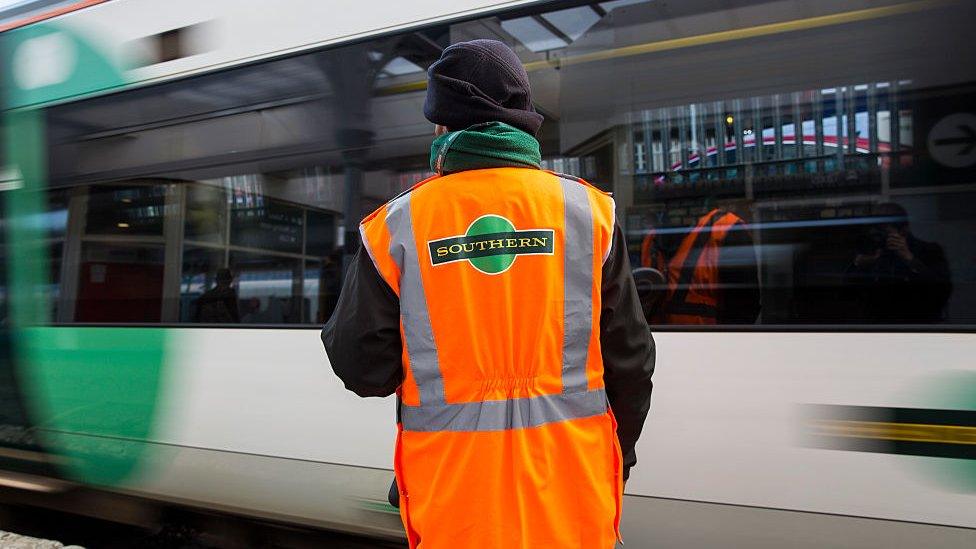
But he says Southern has an "extraordinary" business arrangement - where ministers are paying its parent company, GTR, to run services, while the government collects the fare money.
This, he says, means there is less pressure on it to reach a compromise or step back from its position, as the RMT and Aslef unions maintain their stance over jobs and safety.
"When it is this bad the government must act as an honest broker, but [Transport Secretary] Chris Grayling has already taken a stance against the unions," he adds.
Wednesday's strike and a further 24-hour stoppage on Friday are still due to go ahead.
"Most UK strikes since 1945 have ended in agreements rather than a final win-lose outcome, but that tends to be at national level," Prof Seifert says.
"Since privatisation all disputes I can recall in this sector have ended in negotiated settlements, with or without indirect or direct government intervention."
- Published19 January 2017
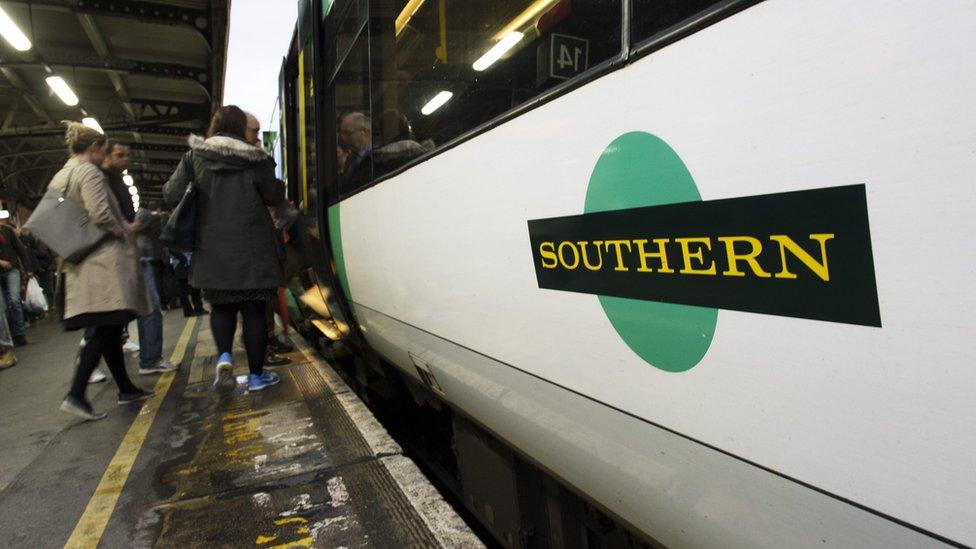
- Published13 December 2016
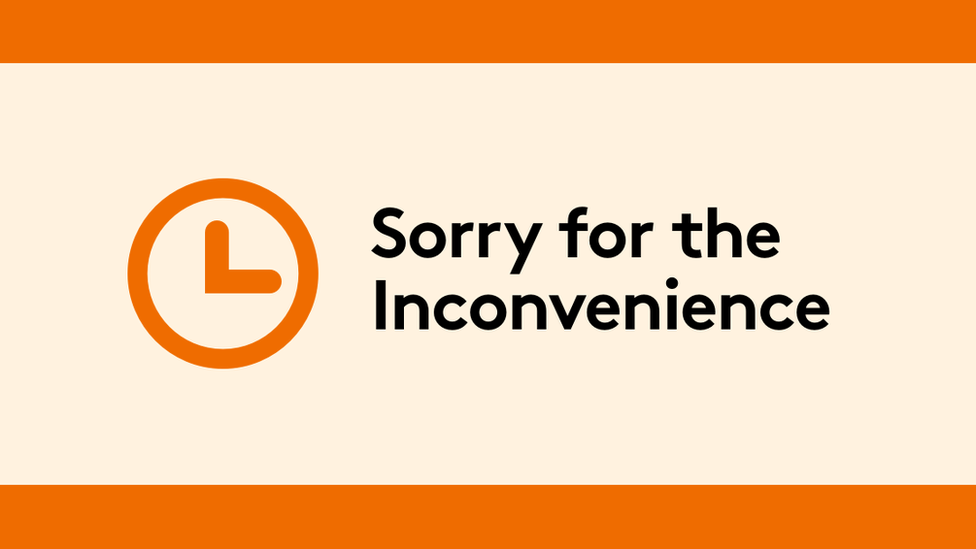
- Published13 December 2016